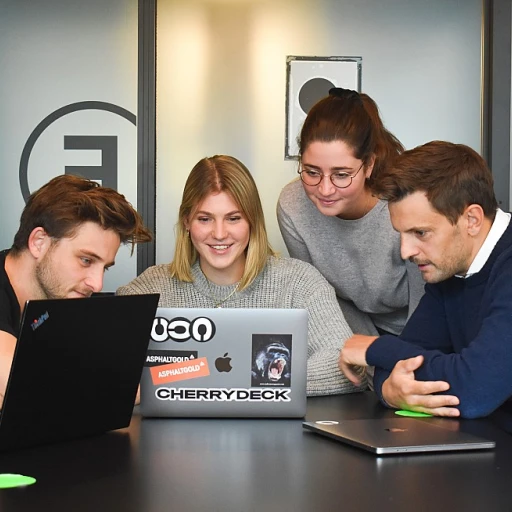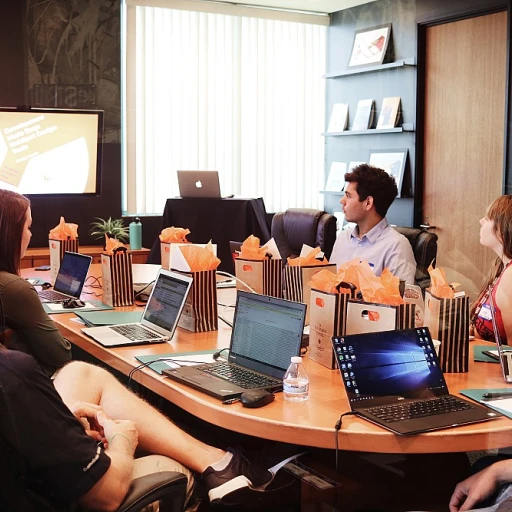
Understanding the Indian Corporate Landscape
Analyzing the Unique Dynamics in Indian Companies
Diving into the realm of Indian corporate culture, it is essential to recognize its distinct characteristics. The vibrancy and diversity found within Indian companies create a tapestry of unique employee dynamics. Each organization, embracing its own values, culture, and methodologies, creates an environment where traditional techniques blend with modern practices. In recent years, the landscape for employee training has evolved dramatically. Companies are increasingly investing in training programs that not only focus on developing the professional skills of their workforce but also hone their problem-solving and real-time decision-making capabilities. The emphasis on continual learning and knowledge acquisition is proving crucial for performance improvement and team cohesion. Challenges persist, however. Selecting the most effective training methods to suit diverse employee needs remains a significant focus. From instructor-led sessions to role-playing and real-time scenario-based training, companies are experimenting with multiple methods training strategies. There's a discernible shift from conventional job training approaches to more immersive and technology-driven solutions. Management in Indian companies is continuously refining feedback mechanisms to build a supportive environment that values constructive criticism and mutual growth. The result is an evolving infrastructure where customized learning paths address the varying proficiency levels found among employees. In this transformative arena, it is vital for office managers to understand the dynamics of employee training methods, helping them to anticipate and adapt to the foreseeable future. To learn more about how leadership styles impact these dynamics, consider exploring the laissez-faire leadership style in PMP for Indian companies.Traditional vs. Modern Training Techniques
Modernizing Learning for Indian Employees
Indian companies are increasingly embracing a blend of traditional and modern employee training techniques. As business landscapes evolve, so do the methods of training employees, reflecting both cultural values and global trends. Traditional approaches often involve instructor-led sessions where employees gather in a classroom setting, discussing theoretical aspects of their job. While these methods have their merits, such as promoting real-time interaction and immediate feedback, they also come with limitations. The need for time management and the inflexibility of schedules can sometimes hinder effectiveness. In comparison, modern training methods offer more flexibility and cater to diverse learning preferences. Technology-led training solutions, like eLearning platforms, are becoming more prevalent. These solutions facilitate blended learning, allowing employees to combine online modules with face-to-face interactions. This method enhances knowledge retention and allows for tailored learning experiences. Role-playing and case studies have also become popular as they provide a practical, hands-on approach to learning. These methods training enable employees to apply their skills in simulated environments, improving both confidence and performance. Emphasizing these solid approaches helps in transforming the theoretical skills into job-ready capabilities. Moreover, mobile learning offers the convenience of accessing training materials anytime, anywhere, ensuring that learning is not confined to the traditional classroom setup. This form of learning enables employees to progress at their own pace, improving time management and enhancing the efficacy of the training programs. As Indian companies continue to innovate in employee development, using modern methods like blended learning and technology-based training, they help in addressing common issues such as employee engagement and performance improvement. For further insights on enhancing learning through inventive design approaches, visit our discussion on addressing excessive white space.Role of Technology in Training
The Technological Shift in Employee Training
In the evolving landscape of employee development, technology has become a cornerstone in reshaping how Indian companies approach training. The integration of digital tools and platforms has not only enhanced the efficiency of training methods but also made learning more accessible and engaging for employees.
One of the most significant advancements is the rise of eLearning platforms. These platforms allow employees to access training materials at their convenience, promoting a self-paced learning environment. This flexibility is crucial in a diverse workforce where time management is key to balancing job responsibilities and skill development.
Moreover, blended learning approaches, which combine traditional instructor-led sessions with online modules, have proven to be effective. This method caters to different learning styles and ensures that employees receive comprehensive training. For instance, role playing and case studies can be conducted in person, while theoretical knowledge is imparted through digital means.
Mobile learning is another trend gaining traction. With the proliferation of smartphones, employees can now engage in real-time learning, accessing training materials on-the-go. This method is particularly beneficial for sales teams who require job training that is both immediate and relevant to their daily tasks.
However, the implementation of technology in training is not without its challenges. Companies must ensure that their digital training programs are user-friendly and that employees are adequately supported in navigating these new tools. Feedback mechanisms are essential to refine these programs and enhance their effectiveness.
For companies exploring innovative office solutions, understanding the role of technology in training can be as crucial as finding the right office space leasing opportunities. Both require strategic planning and a commitment to fostering an environment conducive to growth and development.
Customized Training Programs
Crafting Tailored Training Experiences for Employee Development
In the context of Indian companies, customized training programs stand out as a credible strategy that significantly enhances job performance and skills acquisition among employees. The focus here is on designing learning experiences that cater to the specific needs of teams and individuals. Modern organizations recognize the importance of a personalized approach to training, differing from traditional blanket methods. These tailored programs often involve:- Skills Assessment: Before initiating any training, it is vital to assess the employees' existing skills and their specific job requirements. This allows for more targeted training efforts, ensuring that employees receive training that is most relevant to their roles.
- Blended Learning: Combining different training methods to offer a holistic learning experience has proven to be effective. Employees can benefit from a mix of instructor-led sessions, online modules, and real-time problem-solving exercises, which incorporate both theoretical and practical knowledge.
- Role Playing and Case Studies: These approaches help employees apply what they've learned in realistic scenarios, strengthening their problem-solving abilities. This method is particularly effective in sales training, where real-world applications are crucial for job training success.
- Feedback Loops: Continuous feedback is crucial in aligning training with employee needs and company objectives. Regular management evaluations and team discussions can lead to timely adjustments, making the training program more effective.
- Mobile and E-learning Content: As technology plays a central role in modern training methods, offering mobile-friendly and online content enables employees to learn at their own pace, anytime and anywhere.
Challenges in Implementing Training Methods
Overcoming Barriers in Employee Learning Programs
In the dynamic Indian corporate environment, implementing training methods faces multiple challenges. These often stem from ingrained traditional practices and the need to modernize learning methods. Firstly, the diversity within Indian workplaces demands training that is not one-size-fits-all. Employees come from varied backgrounds and possess differing levels of skills and experiences. This poses a challenge for companies aiming to roll out standardized training programs. As a result, employee training needs to be customized to address different needs effectively. Technology adoption plays a significant role in overcoming these hurdles. However, without the right infrastructure or knowledge, the shift to technology-based training, such as elearning and mobile learning, can be slow. Companies must invest time and resources to familiarize their teams with these platforms to ensure seamless adoption. Investing in instructor-led sessions also presents challenges. While they are beneficial for skills that require personal attention, such as problem solving and role playing, these methods can be time-consuming and costly. Balancing these sessions with other forms like sales training, dog training, and blended learning methods is crucial to maintain effective employee training. Management and team feedback mechanisms are essential to track the performance of various training methods. Regular feedback helps in refining training programs, ensuring they are in line with job requirements and employee expectations. Moreover, balancing between on-the-job training and classroom learning is crucial. Management must decide when real-time training is needed versus when to engage employees in knowledge-based training during less demanding periods. Despite these obstacles, many companies are successfully overcoming them by using creative approaches and careful planning. By addressing these challenges wisely, organizations enhance the overall learning experience, ultimately boosting employee performance and job satisfaction.Success Stories from Indian Companies
Inspiring Case Studies and Their Impact
Embracing innovative approaches to employee development, several Indian companies have seen significant advancements in performance and skills enhancement. These success stories highlight how effective training methods can transform teams and drive business growth.- Technology Integration: Leveraging elearning platforms has revolutionized training programs by offering real-time access to knowledge and learning resources. This method has proven beneficial in providing flexible instructor-led and self-paced training options.
- Blended Learning Models: Combining online modules with in-person sessions, companies are nurturing a dynamic learning environment that facilitates interactive role-playing and problem-solving exercises. This approach fosters an engaging experience for employees, enhancing their job training outcomes.
- Customized Programs: Tailored training solutions address specific employee needs, ensuring targeted skills development. This method has empowered firms to improve performance by aligning training content with job requirements, thereby boosting employee engagement.
- Feedback Mechanisms: Comprehensive feedback systems have been integral to refining training methods and enhancing employee satisfaction. Companies that continually adapt training based on feedback often witness noticeable improvements in employee retention and team morale.













